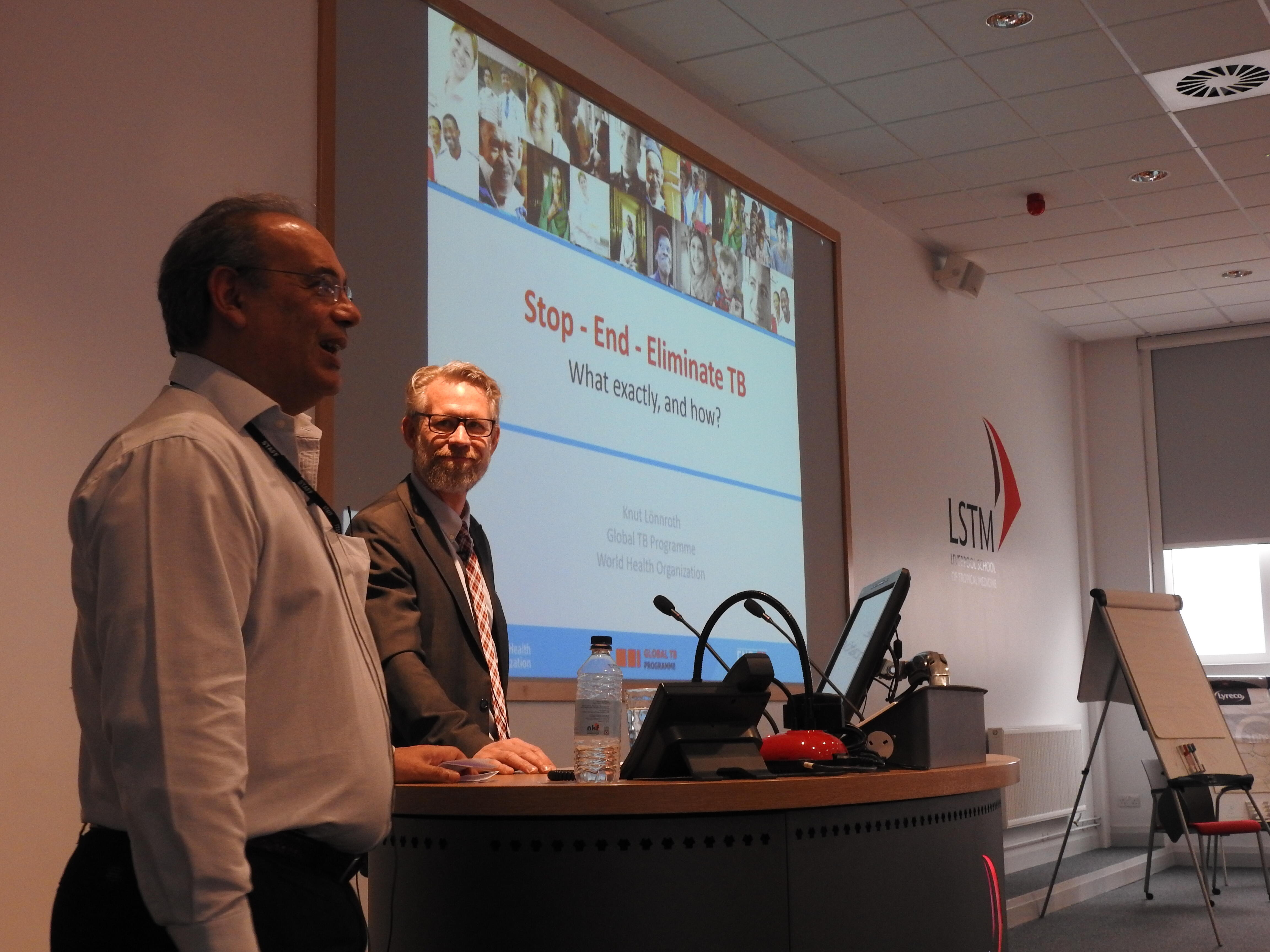
LSTM’s Seminar Series continued this week with a presentation from Professor Knut Lönnroth from the World Health Organization’s (WHO) Global TB Programme. His talk entitled: Stop – End – Eliminate TB What exactly, and how? was introduced by LSTM’s Professor Luis Cuevas.
Professor Lönnroth began by talking about WHO’s END TB targets and ambitions, looking for a reduction in TB deaths of 95% and of TB incidence of 90% by 2035. This will require a reduction of 10% each year between now and 2025, which it is hoped can be achieved by optimising the current tools available and then followed by a further drop by 17% per year for the final 10 years, but this will require new tools, such as updated drugs and effective vaccines.
The targets are ambitious and Professor Lönnroth asked is there proof of concept for this reduction? This reduction had been achieved before but over a longer timescale, it took 150 years in Stockholm in the 18th and 19th centuries and then around 60 years in England and Wales in the 20th century. Both of these reductions can be linked to medical and socioeconomic improvements.
Professor Lönnroth talked about systematic screening for active TB, which is an area in which he himself had worked, looking at both the direct and indirect impact. He explained that it was important to weigh up the benefits and risks of screening and said that systematic reviews resulted in recommendations for screening specific vulnerable groups, but that the evidence for blanket screening in all settings is very weak and inconclusive.
While it is not possible to eradicate TB in the near future, he talked through a number of ways in which it could move towards elimination as a public health problem. This involves looking at eliminating individual consequences right now, increasing access to services, and then moving onto eliminating the social determinants of the disease in the longer term. Professor Lönnroth explained that the former could be done by looking at exactly what was contributing to TB suffering, such as high costs to the patient and their family and poor diagnostics and treatment management.
He concluded by saying that while the health care sector can be accountable for some of those issues, current national control programmes cannot be accountable alone for all elements, and that the long term control of TB requires a larger social development perspective.
You can watch a recording of the seminar here.